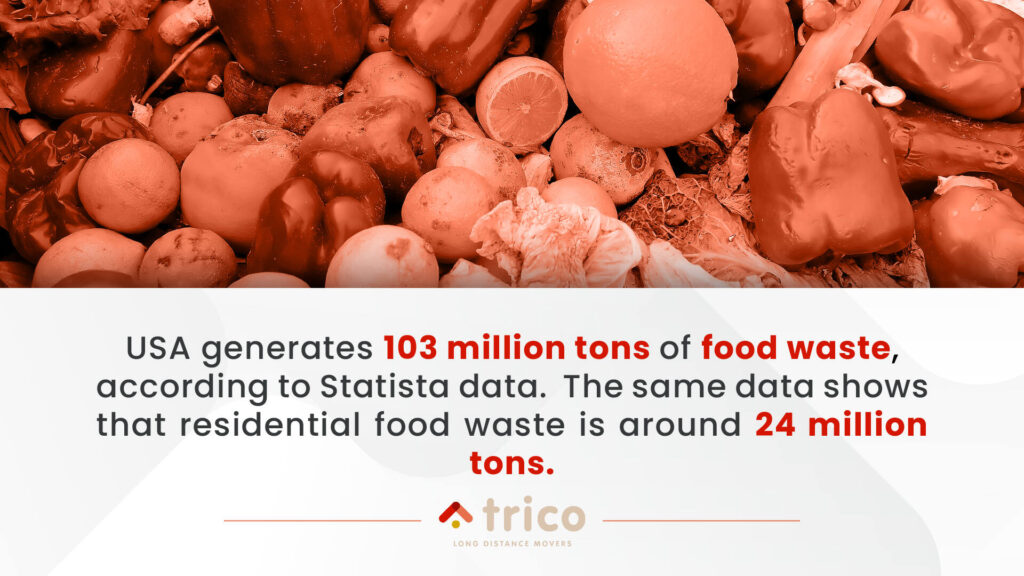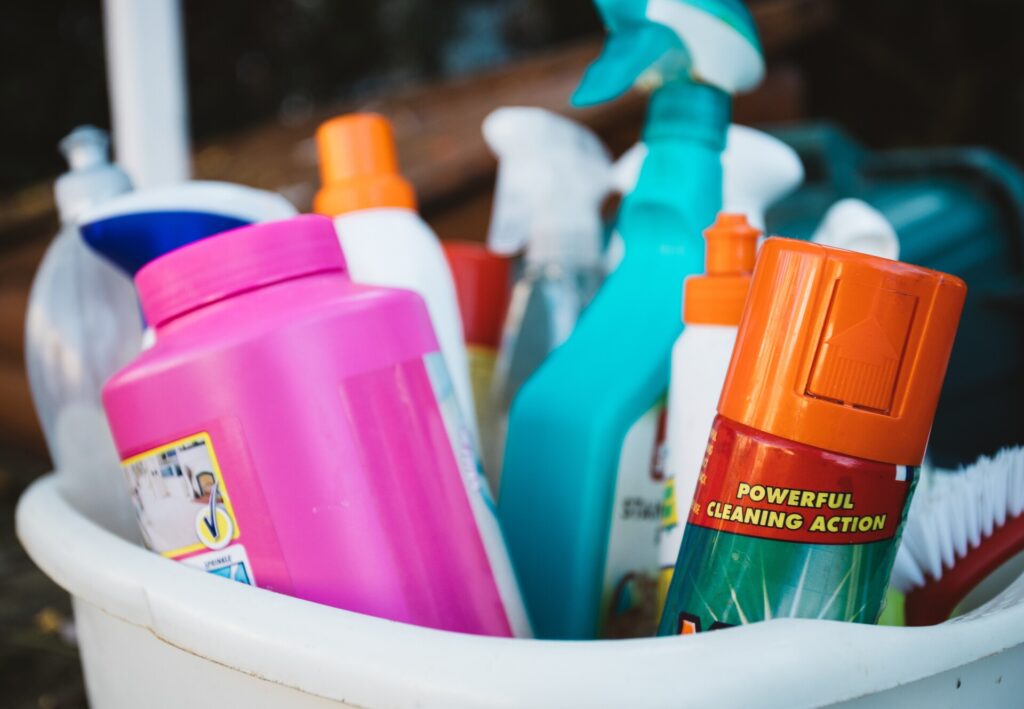Moving across the country is an exciting adventure that offers new opportunities, experiences, and a fresh start. However, it can also be an overwhelming task, requiring meticulous planning and organization. One crucial aspect of relocating is deciding what not to pack when moving. While it’s easy to get caught up in the excitement of packing, it’s equally important to know what items are better off staying behind.


When long-distance moving, it is best to avoid packing perishable food items as they can spoil during transit. Additionally, it is important to refrain from packing hazardous materials, such as flammable or explosive substances, as they pose safety risks. Lastly, consider leaving behind bulky furniture or appliances that may be difficult and costly to transport, opting to sell or donate them instead.
Among the items your relocation inventory should not have are perishables. Firstly, perishables, such as fresh fruits, vegetables, and dairy products, have a limited shelf life and can spoil quickly, especially during long-distance transportation. This can lead to unpleasant odors, leakage, and potential damage to other items in the moving truck.
Secondly, long-distance movers typically have restrictions on transporting perishable items due to health and safety regulations. Movers may refuse to transport these items to avoid the risk of contamination or the liability associated with their transportation. To avoid waste and ensure a smooth move, it is advisable to consume or donate perishable items before the relocation.
Even if you don’t hire cross-country movers for their services but decide to transport your belongings on your own, it would be advisable not to bring any food with you. So you have two options – you can either throw away everything from your freezer and refrigerator, or you can try and consume everything before your big day.
Naturally, if you are last-minute relocating and don’t have time to eat everything, you can donate the food to some charity near you. Contact them in advance to inquire about their acceptance policies and any specific guidelines they may have for food donations. You can also offer perishable items to friends, family members, or neighbors who may be able to use them before your move. This way, you can prevent waste and provide others with an opportunity to enjoy fresh food.

Hazardous materials refer to substances that can pose a risk to health, safety, property, or the environment. These materials include flammable, corrosive, explosive, toxic, or reactive substances. It is crucial not to pack hazardous materials when cross-country moving due to several reasons.
Firstly, transporting hazardous materials can be dangerous. These substances may react with each other or cause fires, explosions, or leaks during transportation. This poses a significant risk to the relocation crew, other drivers on the road, and the environment.
Secondly, there are strict regulations and laws regarding the transportation of hazardous materials. Moving companies typically have policies in place that prohibit them from handling or transporting such items. These restrictions are in place to ensure the safety of everyone involved in the move. So keep in mind that a reliable company will not let you transport these materials, and if someone offers to do so, they are probably scammers looking to get a customer at any cost.
Lastly, transporting hazardous materials without proper knowledge and precautions can lead to legal consequences and liabilities. Violating regulations can result in fines, penalties, and even criminal charges.
To ensure a safe and smooth move, it is crucial to identify and separate any hazardous materials from your belongings. Dispose of them properly or contact specialized hazardous waste disposal services to handle their removal. By avoiding the packing of hazardous materials, you prioritize the safety of yourself, the moving crew, and the environment.
So one of the things you need to do before the relocation is to get rid of all hazardous materials from your home. You probably think that your home is free of these materials, but you would be surprised how many items (especially cleaning supplies) are considered to be hazardous and banned from transportation. So once you choose a long-distance moving company, one of the most important questions you need to ask them is to provide you with a list of items that are hazardous.

Relocating to a new state will probably be much easier if you hire a professional long-distance moving service. This way, you will avoid all the conundrum of knowing all the rules regarding the transportation of your belongings. And once you hire a company for regular relocation services, you can also hire them for packing services. This way, not only that they will pack everything for you in a professional and safe way, but they will know what not to pack and leave behind.
An extra tip we can give you is to find a company that can provide you with all the services you need, from packing to car shipping, so you don’t have to worry about searching for other companies for those services.
Also, before you hire any company, find out whether it offers any special deals that can be of use to you. For example, Trico Long Distance Movers will include standard packing free of charge once you hire them. This means wrapping and protection of all your large items like furniture and appliances will not be charged at all.
So what to get rid of when moving? Well, one of the items people should avoid bringing with them when relocating is bulky and heavy items that won’t fit into their new home. While it can be tempting to bring all of your furniture and appliances, it’s essential to consider the practicality and limitations of your new space.
Different homes have varying layouts and room sizes. So if you are relocating to a smaller house with smaller rooms or limited space, bringing oversized furniture or appliances may overcrowd the space and make it difficult to move around comfortably. It’s important to assess the dimensions of your new home and decide if these items can fit appropriately. So know your new home dimension and have a picture in mind of what kind of furniture you need. You can try and repurpose old furniture to better adjust to your new home.
One of the items on your to-do list that you need to pack will not be your plants. To be clear, you can move plants on your own, but most companies will not allow them on the truck. Moving companies often have restrictions on transporting plants due to legal and regulatory reasons. Different states and countries have specific rules and regulations regarding the transportation of plants, including restrictions to prevent the spread of pests, diseases, or invasive species. These are your options when it comes to the relocation of your plants:
One of the long-distance relocation tips we can give you is to keep sentimental items close by and not pack them with the rest of your belongings on the truck.
Sentimental items hold significant emotional value and are often irreplaceable. These can include family heirlooms, photographs, letters, personal mementos, important documents, or cherished gifts. Keeping them with you ensures they remain safe and easily accessible throughout the relocation process.
As you know, during a move, there is always a risk of loss or damage to your belongings, especially if they are packed away in boxes or transported over long distances. Sentimental items may be fragile or delicate, making them more susceptible to breakage or deterioration. By keeping them close, you can personally ensure their safety. Here is a video with tips on how to organize important documents and files.
First, set aside a dedicated box or bag specifically for your sentimental items. This will help you keep them organized and easily identifiable.
Next, if possible, personally transport these items in your own vehicle. This way, you have full control over their safety and can ensure they remain secure throughout the journey. When you start boxing up, make sure you know where your important items are so these items don’t end up in a pile of things to throw away when moving.

Being aware of what not to pack when moving is essential for a smoother and more efficient relocation process. Avoiding perishable items, hazardous materials, bulky and heavy items, keeping sentimental items close by, and finding alternative transportation for plants are all crucial considerations. By following these guidelines, you can streamline your move, reduce potential risks, and ensure that your belongings arrive safely at your new home.
When planning a long-distance move, it’s beneficial to seek the assistance of professional movers. If you’re looking for reliable long-distance movers near you, consider reaching out to Trico Long Distance Movers.
With our expertise and experience in handling cross-country moves, we at Trico Long Distance Movers can provide you with the support and guidance needed for a successful relocation. Don’t hesitate to contact us today for a seamless and stress-free relocation experience.
Examples of perishable items that should not be packed include fresh fruits and vegetables, dairy products, meat and seafood, frozen or refrigerated items, and opened or partially consumed food items.
To dispose of or consume perishable items, prioritize consuming perishables by planning meals around them. Donate surplus food to local food banks or shelters, share with friends or family, or sell or give away unopened non-perishable items. Composting is also an option for leftover food scraps.
Examples include flammable liquids, corrosive substances, compressed gases, explosives, toxic chemicals, and radioactive materials.
To safely dispose of hazardous materials, research local regulations and guidelines for hazardous waste disposal. Contact specialized hazardous waste disposal services or local authorities to determine the proper methods for disposing of specific hazardous materials.
Examples of bulky items include oversized furniture, large appliances, exercise equipment, bulky home decor items, and heavy garden or outdoor equipment.
To decide this, evaluate whether you have used them in recent years, consider their functionality and relevance in your new home, and assess whether it is more cost-effective to replace them at your destination.
Examples of heavy items include large stone or concrete furniture, extremely heavy gym equipment, oversized tools, heavy collections of books or magazines, and excessive quantities of unneeded items made of heavy materials.
To safely pack and transport sentimental items, use appropriate materials such as bubble wrap, packing paper, and sturdy boxes. Label the boxes as fragile and handle them with care. If possible, keep sentimental items with you during the move to ensure their safety.
Deciding whether to donate or sell items that you’re not bringing along depends on the value and condition of the items. Consider donating usable items to local charities or selling them through online platforms or local community groups to reduce waste and potentially earn some extra money.
Alternatives to packing certain items include shipping them separately, selling or donating them, storing them in a storage facility, or lending them to friends or family. Assess each item’s value, practicality, and future needs to determine the best alternative.